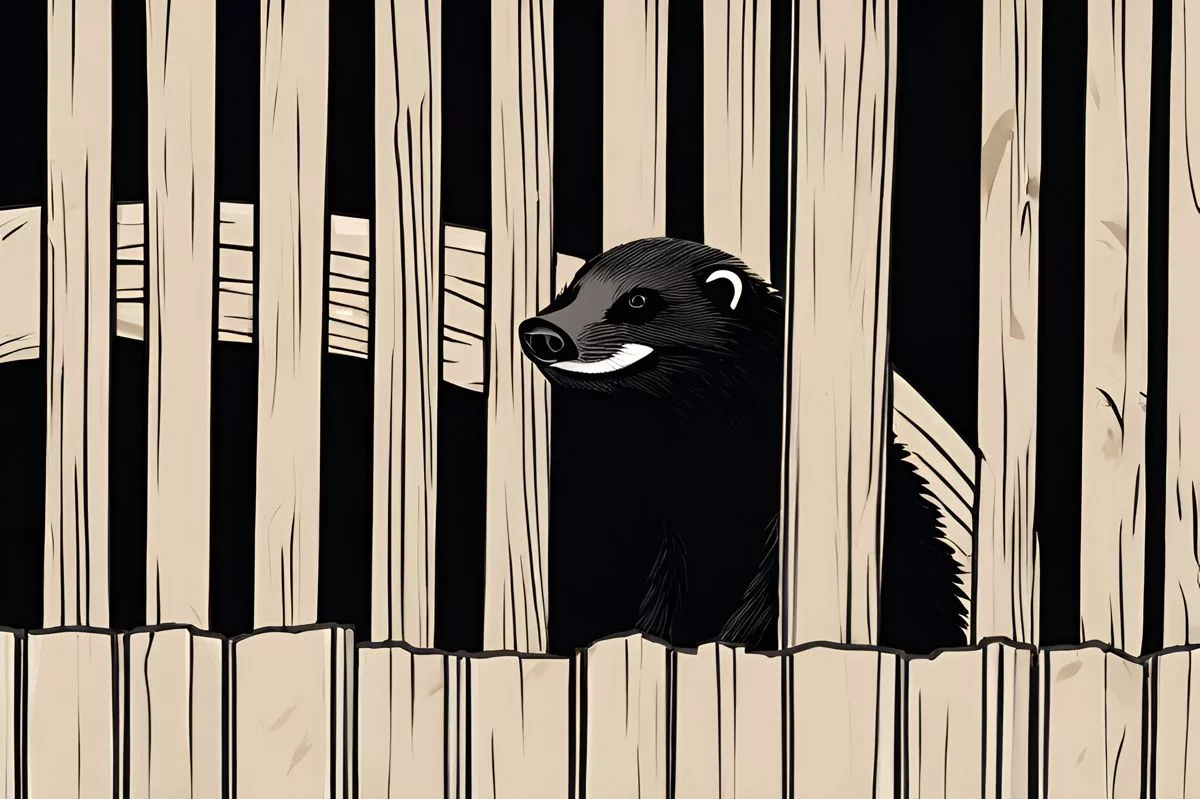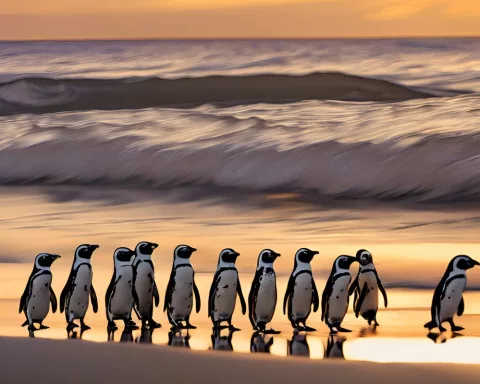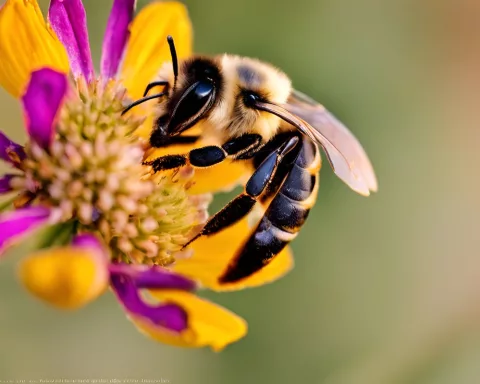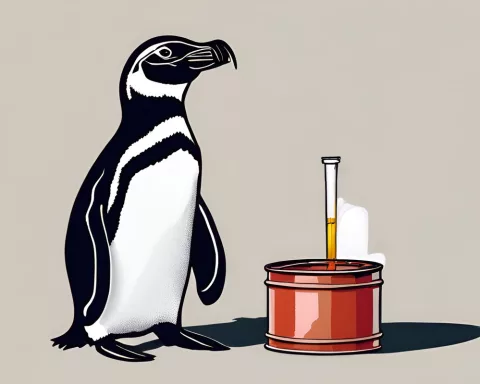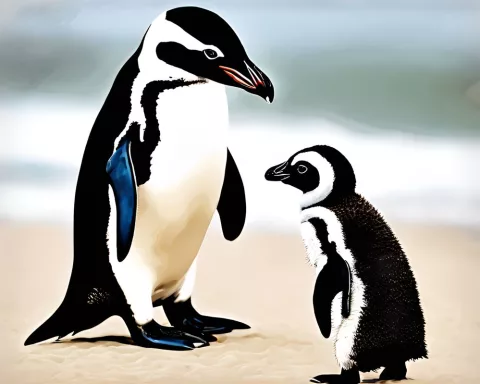In De Hoop Nature Reserve, a honey badger breached the defense surrounding the African penguin colony and killed 11 penguins. The incident highlights the need for better security measures and a better understanding of land-based predators. Efforts to restore the critically endangered African penguin species continue, with enhancements being made to the colony’s security arrangements. The incident underscores the unpredictable nature of wildlife and the need for continuous adaptation in conservation efforts.
Honey Badger Attack at De Hoop Nature Reserve
A honey badger managed to breach the defense surrounding the African penguin colony at De Hoop Nature Reserve, resulting in the death of 11 penguins. This incident highlights the need for improved security measures and a better understanding of land-based predators. However, it also underscores the unpredictable nature of wildlife and the need for continuous adaptation in conservation efforts. The colony’s security has been enhanced, and efforts to restore the critically endangered African penguin species continue.
A Sudden Turn of Events
In the tranquility of De Hoop Nature Reserve, a compelling saga unfolded, casting an unlikely culprit as the villain – the honey badger. Recognized for their astute resourcefulness and robust resolve, honey badgers are not typically perceived as a menace to the endangered African penguins. Nevertheless, an alarming twist of events arose when a lone honey badger managed to infiltrate the defensive barricade surrounding the penguin colony, causing the demise of 11 members.
Christina Hagen, a leading figure at BirdLife South Africa, related the grim revelation during a routine inspection of the colony. “I was initially left in shock and disbelief,” shared Hagen. “It took some time for the enormity of the incident to truly register.” This occurrence highlighted the untethered fierceness of the honey badger, echoing the destructive actions of leopards reported to have breached sheep kraals and initiated killing rampages.
A Case of Misdirected Defense
Contributing to this unfortunate event is the penguins’ innocence in dealing with land-based predators. In contrast to their aquatic foes, terrestrial threats like the honey badger are unfamiliar adversaries. Penguins have a tendency to seek refuge in their nests rather than escape to the sea. This possibly explains why the honey badger devoured only one penguin, while merely slaughtering the others without consumption.
The De Hoop Nature Reserve colony symbolizes a significant initiative to preserve the critically endangered African penguin species. Entities like BirdLife South Africa, CapeNature, and Sanccob have been striving for the re-establishment of the colony since 2018. Sadly, the entire population of African penguins has plummeted from one million pairs a hundred years ago to a paltry 9,900 pairs currently.
An Effort towards Restoration
De Hoop was chosen for the restoration effort due to its plentiful fish resources, a crucial factor in luring wild penguins to the site. Starting from 2022, the initiative has also enabled the release of more than 200 hand-reared fledgling penguins at the colony. The goal is to offer a secure breeding ground for the North African penguins, as declared by the Seabird Conservation Programme Manager at BirdLife South Africa, Alistair McInnes.
The harrowing honey badger assault has sparked a sequence of enhancements in the colony’s security arrangements. Additions are being made to the existing barrier, and other preventive measures are being examined. These involve upgrades to the electric fencing and the possible implementation of deterrents such as lights or scents. Moreover, the speakers broadcasting the calls of African penguins—a technique previously employed to attract additional penguins—have been temporarily muted to prevent enticing more penguins into a hazardous environment.
Learning from the Unexpected
This unforeseen incident underscores a pivotal aspect of conservation: the erratic nature of wildlife. It serves as a stark reminder that in our quest to preserve and protect our endangered species, we have to constantly adapt and learn from unforeseen circumstances. The dedicated conservationists at De Hoop are resolved to do exactly that, strengthening their defenses and intensifying their efforts to ensure a safer habitat for this beloved and endangered species. The resolve shown in responding to this adversity mirrors the tireless spirit of the African penguin, instilling hope for the future of this beleaguered species.
What happened at De Hoop Nature Reserve?
A honey badger breached the defense surrounding the African penguin colony and killed 11 penguins at De Hoop Nature Reserve.
Why is this incident significant?
The incident highlights the need for better security measures and a better understanding of land-based predators. It underscores the unpredictable nature of wildlife and the need for continuous adaptation in conservation efforts.
What efforts are being made to restore the African penguin species?
Efforts to restore the critically endangered African penguin species continue at De Hoop Nature Reserve. Enhancements are being made to the colony’s security arrangements, and more than 200 hand-reared fledgling penguins have been released at the colony.
Why did the honey badger attack the penguins?
Contributing to the attack is the penguins’ innocence in dealing with land-based predators. In contrast to their aquatic foes, terrestrial threats like the honey badger are unfamiliar adversaries.
How are security measures being enhanced at the colony?
Additions are being made to the existing barrier, and other preventive measures are being examined. These involve upgrades to the electric fencing and the possible implementation of deterrents such as lights or scents. The speakers broadcasting the calls of African penguins have also been temporarily muted to prevent enticing more penguins into a hazardous environment.
What does this incident teach us about conservation?
This unforeseen incident underscores the erratic nature of wildlife. It serves as a stark reminder that in our quest to preserve and protect our endangered species, we have to constantly adapt and learn from unforeseen circumstances.

